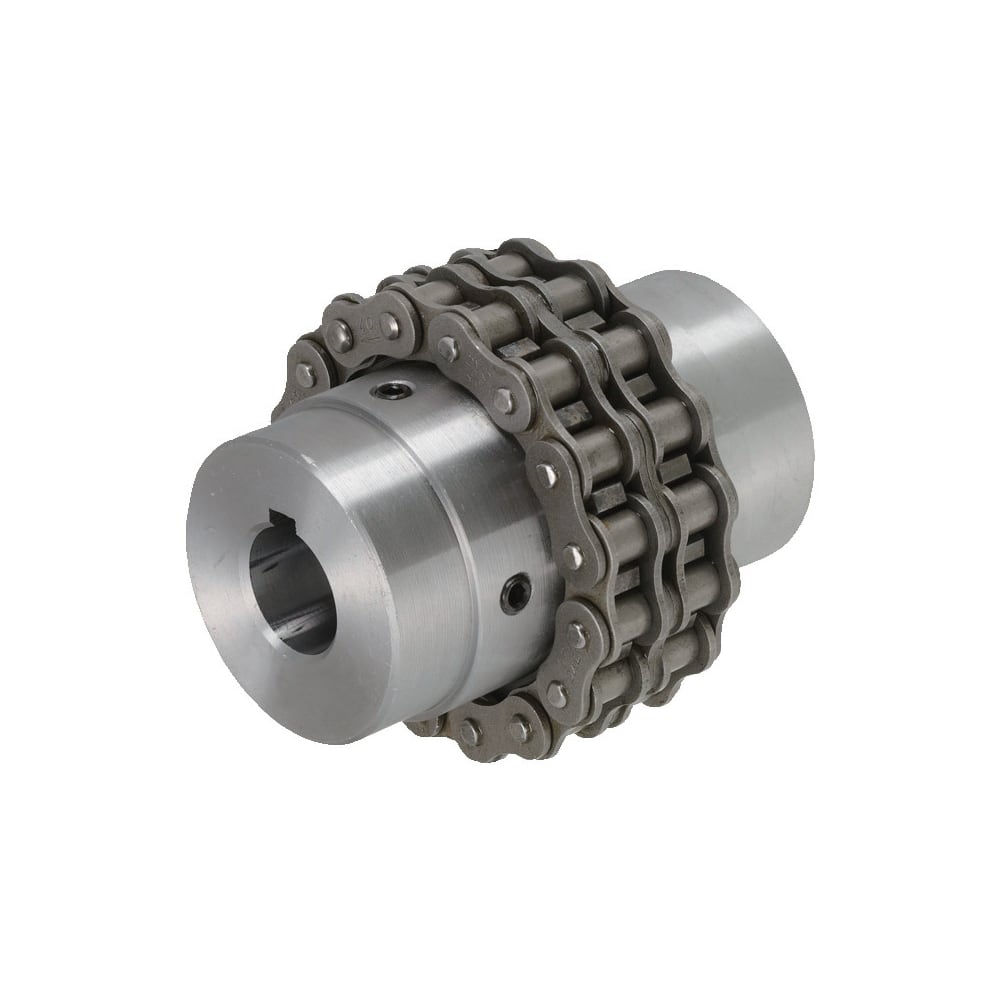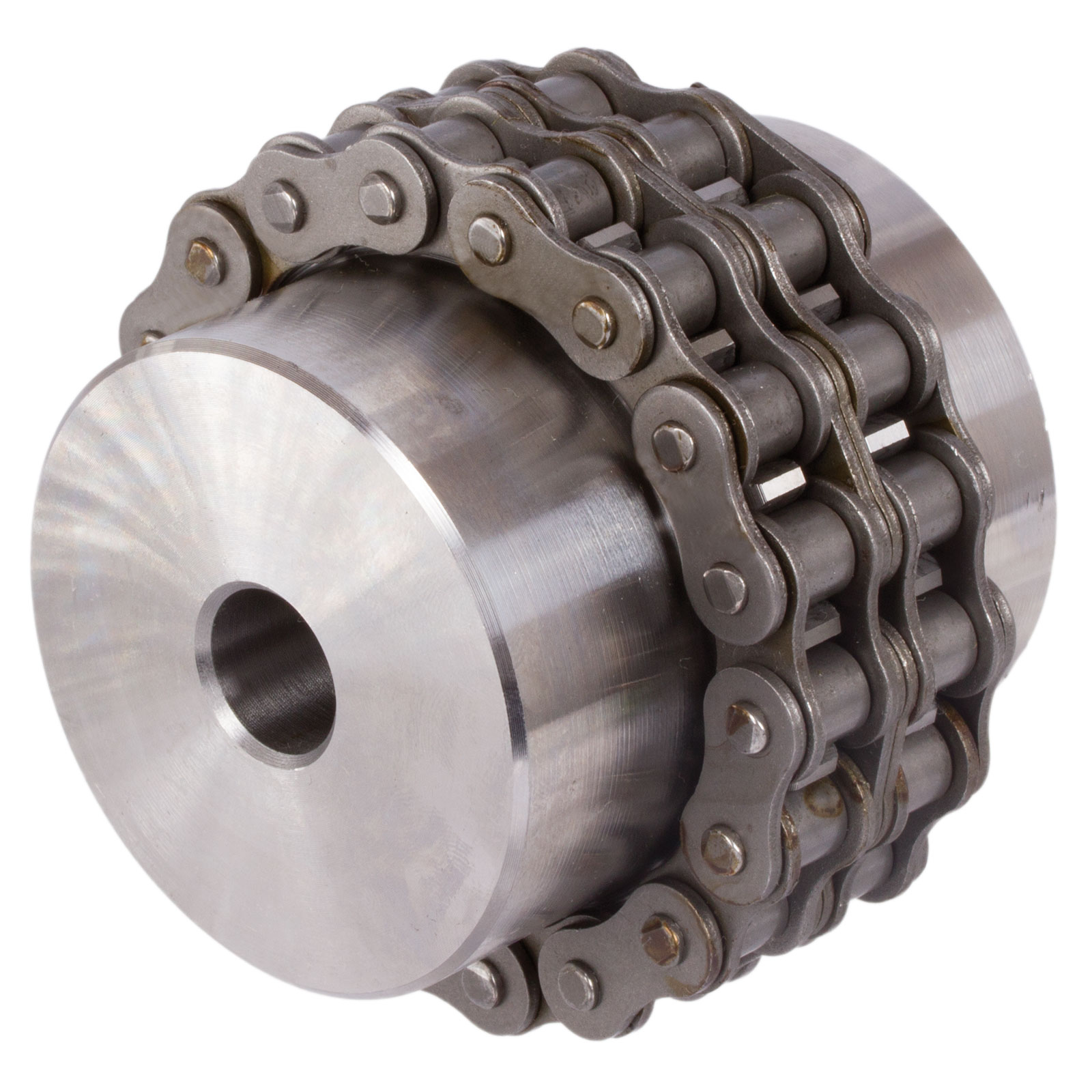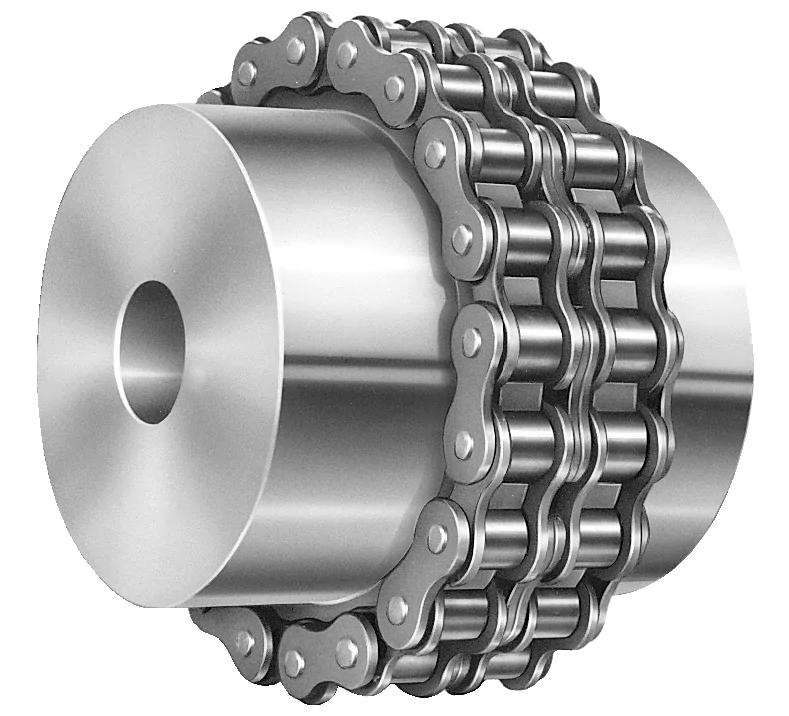Product Description
Densen customized roller chain coupling,chain coupling for chain mortising machine
We have professionals to solve your questions, please contact us directly!
| Product Name | Densen customized roller chain coupling,chain coupling for chain mortising machine |
| DN mm | 16~190mm |
| Rated Torque | 40~25000 N·m |
| Allowable speed | 4500~200 kN·m |
| Material | 45#steel |
| Application | Widely used in metallurgy, mining, engineering and other fields. |
Product show
Company Information
Equipment
Application Case
Typical case of diaphragm coupling applied to variable frequency speed control equipment
JMB type coupling is applied to HangZhou Oilfield Thermal Power Plant
According to the requirements of HangZhou Electric Power Corporation, HangZhou Oilfield Thermal Power Plant should dynamically adjust the power generation according to the load of the power grid and market demand, and carry out the transformation of the frequency converter and the suction fan. The motor was originally a 1600KW, 730RPM non-frequency variable speed motor matched by HangZhou Motor Factory. The speed control mode after changing the frequency is manual control. Press the button speed to increase 10RPM or drop 10RPM. The coupling is still the original elastic decoupling coupling, and the elastic de-coupling coupling after frequency conversion is frequently damaged, which directly affects the normal power generation.
It is found through analysis that in the process of frequency conversion speed regulation, the pin of the coupling can not bear the inertia of the speed regulation process (the diameter of the fan impeller is 3.3 meters) and is cut off, which has great damage to the motor and the fan.
Later, they switched to the JMB460 double-diaphragm wheel-type coupling of our factory (patent number: ZL.99246247.9). After 1 hour of destructive experiment and more than 1 year of operation test, the equipment is running very well, and there is no Replace the diaphragm. 12 units have been rebuilt and the operation is in good condition.
Other Application Case
Spare parts
Packaging & Shipping
Contact us
/* January 22, 2571 19:08:37 */!function(){function s(e,r){var a,o={};try{e&&e.split(“,”).forEach(function(e,t){e&&(a=e.match(/(.*?):(.*)$/))&&1

Finding Reputable Suppliers or Manufacturers of Roller Chain Couplings
When looking for reputable suppliers or manufacturers of roller chain couplings for your specific power transmission needs, consider the following options:
- Industrial Trade Shows: Attend industrial trade shows and exhibitions related to power transmission and machinery. These events often feature leading manufacturers and suppliers showcasing their products.
- Online Directories: Utilize online directories and platforms that list suppliers and manufacturers of industrial equipment. Look for well-established companies with positive customer reviews and ratings.
- Industry Associations: Contact industry associations related to power transmission or mechanical engineering. They can provide recommendations for reliable coupling manufacturers and suppliers.
- Referrals and Recommendations: Ask for referrals and recommendations from colleagues, industry experts, or other businesses using similar equipment. Word-of-mouth recommendations can help you find trusted suppliers.
- Supplier Websites: Visit the websites of potential suppliers to learn more about their product offerings, certifications, and customer support services.
- Customer Support: Look for manufacturers or suppliers with excellent customer support to assist with technical inquiries, product selection, and after-sales service.
- Customization: If you have unique requirements, consider working with a manufacturer that offers customization options to tailor the coupling to your specific needs.
By researching and comparing different suppliers, you can find a reputable and reliable source for roller chain couplings that meets your power transmission needs.

Materials Used in Manufacturing Roller Chain Couplings
Roller chain couplings are typically constructed from high-quality materials to ensure durability and reliable performance. The most common materials used in their manufacturing include:
- Steel: Steel is a popular choice for roller chain couplings due to its excellent strength and resistance to wear. It can handle high torque and speed requirements, making it suitable for a wide range of industrial applications.
- Stainless Steel: Stainless steel is used when corrosion resistance is required. It is often employed in industries where the coupling is exposed to moisture, chemicals, or harsh environmental conditions.
- Cast Iron: Cast iron is known for its robustness and excellent heat dissipation properties. It is commonly used in applications where shock absorption and reduced vibrations are essential.
- Aluminum: Aluminum is a lightweight material that offers good strength-to-weight ratio. It is commonly used in applications where reducing the overall weight of the system is critical.
- Nickel-Plated: Nickel-plated roller chain couplings provide enhanced corrosion resistance, making them suitable for applications in challenging environments.
When selecting a roller chain coupling, it is essential to consider the specific requirements of the application, including torque, speed, environment, and potential exposure to corrosive substances. Choosing the right material ensures the coupling’s longevity and efficient power transmission in the intended operating conditions.

What are the Different Types of Roller Chain Couplings Used in Various Industrial Applications?
Roller chain couplings come in several variations to suit different industrial applications. The main types of roller chain couplings include:
- Standard Roller Chain Couplings: These are the most common type of roller chain couplings, featuring two sprockets of the same size connected by a standard roller chain. They are used in general power transmission applications and are suitable for moderate torque requirements.
- Heavy-Duty Roller Chain Couplings: As the name suggests, these couplings are designed for heavy-duty applications that require higher torque capacity. They typically have larger and stronger sprockets and chains to handle increased loads.
- Double Roller Chain Couplings: This type of coupling includes two roller chains side by side on each sprocket. It offers higher torque transmission capabilities and increased redundancy for critical applications.
- Idler Roller Chain Couplings: In this design, an idler sprocket is added between the driving and driven sprockets. It helps to reduce the impact of shock loads and misalignment on the coupling.
- Spacer Roller Chain Couplings: These couplings have a spacer between the two sprockets, allowing for larger axial misalignment while maintaining torque transmission.
The choice of the roller chain coupling type depends on the specific requirements of the application, including torque, speed, misalignment, and environmental factors. Engineers and designers need to select the appropriate type of coupling to ensure reliable and efficient power transmission in their industrial machinery.


editor by CX 2024-05-03